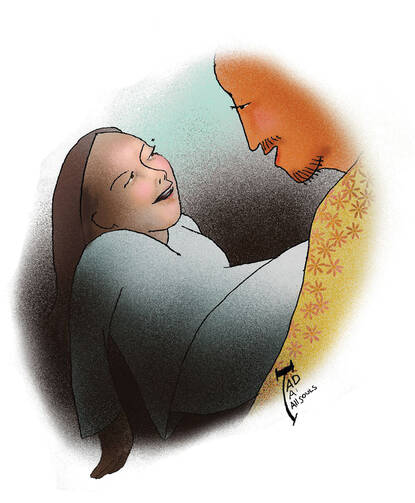Bodies and Souls
What happens when we die? This is a question most people ask at some point, perhaps especially Christians, who look forward to the resurrection at the end of time. But in the interim, prior to the general resurrection, what happens to those who have died? Where do they go? This is a confusing issue for more people than is often acknowledged. As a boy, I pondered the resurrection and assumed that when I died I would be “resurrected” straightaway into heaven to live with all the other people who had been raised. This is not the Christian view, but many Christians share in another confusion, believing that incorporeal life in heaven, achieved immediately upon death, when the soul is freed from its bodily confines, is the final state for which all human life is intended. The so-called last things are difficult to understand because the evidence in Scripture is scattered and partial, and what little there is about life after death shows evidence of development.
The ancient Israelites focused not on the world to come but on the rewards and blessings bestowed by God, like a long life, numerous children and abundant crops and flocks. The deceased went to Sheol, which was not a place of reward or punishment but the place where the shades of the dead rested.
Resurrection, mentioned rarely in the Old Testament, became a more pronounced hope in later Second Temple Jewish texts. In the centuries before Jesus there had been a development in the understanding of the final destiny of the dead. Later Jewish thought, while not systematic, stressed that the whole person, body and soul, would be raised up at the end of time.
While less thought was expended upon what happened to the dead who awaited the resurrection, the author of the Wisdom of Solomon, a text written in the Greek-speaking city of Alexandria sometime between 30 B.C. and A.D. 40, did reflect on the “souls of the righteous” dead. The author writes that “the souls of the righteous are in the hand of God, and no torment will ever touch them. In the eyes of the foolish they seemed to have died, and their departure was thought to be a disaster, and their going from us to be their destruction; but they are at peace.” This is no longer Sheol but a place free of torment and filled with peace. The whole passage points to a process of judgment after death and a continuing existence in God’s presence, but it also foresees a future kingdom of God when these righteous souls “will govern nations and rule over peoples, and the Lord will reign over them forever.”
For Christians, this “future” kingdom is embodied in the return of Jesus Christ, when all, both living and dead, will participate in the resurrection of the body. Because Jesus Christ conquered sin and death through his own resurrection, the Apostle Paul says that all of us who have been baptized into Christ’s death will also share in the new life: “For if we have been united with him in a death like his, we will certainly be united with him in a resurrection like his.” The conquering of sin and death, says Jesus, was the purpose of his earthly mission: “This is indeed the will of my Father, that all who see the Son and believe in him may have eternal life; and I will raise them up on the last day.”
For those who are still alive in the earthly body, we await either death or the coming of God’s kingdom. But our brothers and sisters, those righteous souls who now exist in the presence of God, also await the fullness of God’s kingdom, when the body and soul are reunited eternally. The Catechism of the Catholic Church, at No. 1005, a section grounded in the teachings of the Apostle Paul, clarifies the Christian hope: “to rise with Christ, we must die with Christ: we must ‘be away from the body and at home with the Lord.’ In that ‘departure’ which is death the soul is separated from the body. It will be reunited with the body on the day of the resurrection of the dead.” And so we, with all the righteous souls who have died before us, await that kingdom in which all is made whole and God is all in all.
This article also appeared in print, under the headline “Bodies and Souls,” in the October 27, 2014, issue.








